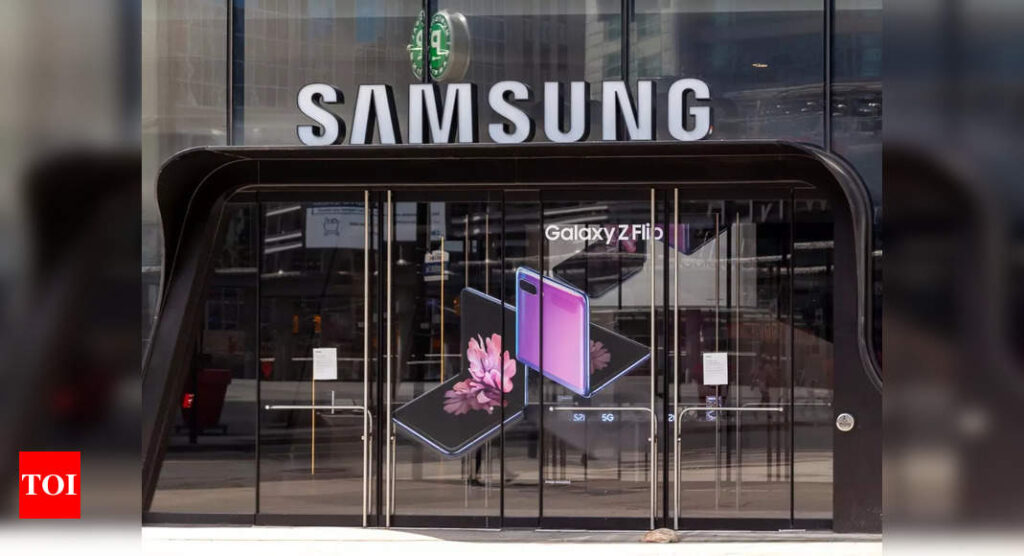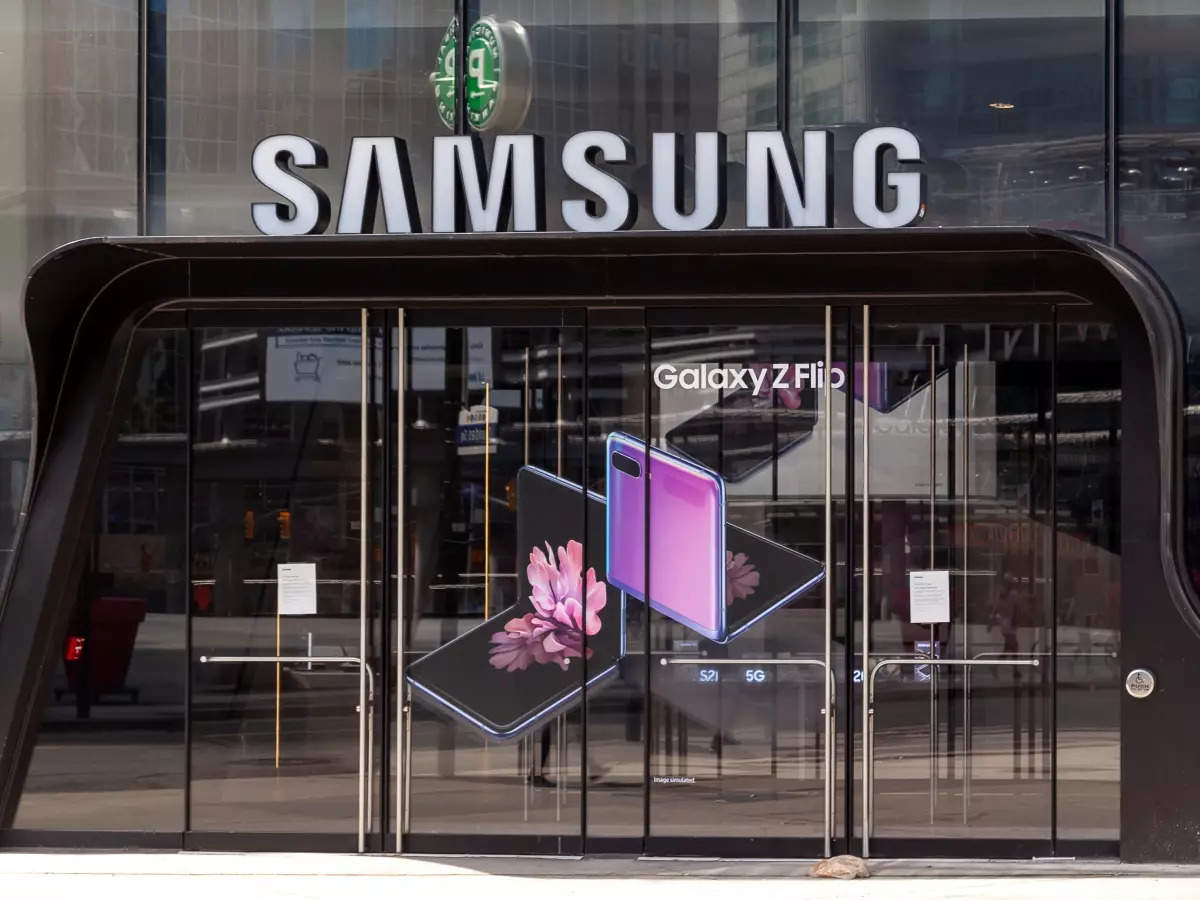[ad_1]
Samsungwas founded on March 1, 1938 by Lee Byung-chul. The company started as a grocery trading store in Taegu, Korea. Over the next three decades, Samsung diversified into areas including food processing. In the 1970s, Samsung gained global recognition as it started mass producing home appliances. Samsung today is the largest corporate entity in South Korea.As of December 2022, Samsung had 270,372 employees working across 74 countries. The company set up its India operations in 1995. On its 54th anniversary,JB Park, president and CEO, Samsung Southwest Asia, shared the company’s India journey and its key drivers. Here’s excerpts from the letter:
We are celebrating Samsung Electronics’ 54th foundation anniversary. It is a celebration of our heritage of innovation, culture and technology. For more than five decades, we have been enabling people to transform their lives because true progress happens only when everyone is empowered.
This year also marks the 50th anniversary of diplomatic relations between India and South Korea. We have been a committed partner to the India growth story since the winter of 1995, when we opened a small office in New Delhi. Today, Samsung has two manufacturing facilities, five R&D centres and one design centre. We are committed to creating jobs, building a culture of innovation through advanced technologies, and giving back to society by becoming a fabric of India.
It has been such a wonderful journey in this beautiful country. There is so much diversity around not only in terms of language, culture and food but also in terms of climate, and ecology. Besides this diversity, it’s the demography that serves to inspire. India has more than 50% of its population below the age of 25 and more than 65% below the age of 35. And, it is the youth, and their indomitable spirit of innovation, that will drive the country’s growth.
What is really inspiring is that the youth is constantly trying to find solutions to challenges they see around them. Since these solutions come from their own life experiences, it touches many lives and is therefore more impactful.
I witnessed it first hand when we recently concluded the second year of our Flagship CSR programme, Solve for Tomorrow. The Top 10 teams, representing 25 young innovators, did not come from only the large metropolises but also from some of the remotest towns in India. They came from towns and cities as diverse as Maharajganj in Uttar Pradesh, Lakhimpur and Golaghat in Assam, Darjeeling in West Bengal, Surat and Ahmedabad in Gujarat, Ernakulam in Kerala – besides of course Chennai and Delhi.
Earlier this year, Samsung Innovation Campus students from the University of Lucknow graduated in AI, IoT, Big Data, Coding & Programming courses in the presence of Shri Yogi Adityanath, Honourable Chief Minister, Uttar Pradesh. It was such a proud moment for me to see these students, some from even far off villages in the state, to be ready for the challenges of the future. Samsung Innovation Campus seeks to bridge the gap between college and career.
We believe the youth from the smallest corners in India have unlimited potential. They have the power to ideate and innovate to solve the biggest challenges in the world.
At Samsung, our Global CSR vision is ‘Together for Tomorrow! Enabling People’. With this vision, we want to enable the youth to bring local solutions for global problems.
We are celebrating Samsung Electronics’ 54th foundation anniversary. It is a celebration of our heritage of innovation, culture and technology. For more than five decades, we have been enabling people to transform their lives because true progress happens only when everyone is empowered.
This year also marks the 50th anniversary of diplomatic relations between India and South Korea. We have been a committed partner to the India growth story since the winter of 1995, when we opened a small office in New Delhi. Today, Samsung has two manufacturing facilities, five R&D centres and one design centre. We are committed to creating jobs, building a culture of innovation through advanced technologies, and giving back to society by becoming a fabric of India.
It has been such a wonderful journey in this beautiful country. There is so much diversity around not only in terms of language, culture and food but also in terms of climate, and ecology. Besides this diversity, it’s the demography that serves to inspire. India has more than 50% of its population below the age of 25 and more than 65% below the age of 35. And, it is the youth, and their indomitable spirit of innovation, that will drive the country’s growth.
What is really inspiring is that the youth is constantly trying to find solutions to challenges they see around them. Since these solutions come from their own life experiences, it touches many lives and is therefore more impactful.
I witnessed it first hand when we recently concluded the second year of our Flagship CSR programme, Solve for Tomorrow. The Top 10 teams, representing 25 young innovators, did not come from only the large metropolises but also from some of the remotest towns in India. They came from towns and cities as diverse as Maharajganj in Uttar Pradesh, Lakhimpur and Golaghat in Assam, Darjeeling in West Bengal, Surat and Ahmedabad in Gujarat, Ernakulam in Kerala – besides of course Chennai and Delhi.
Earlier this year, Samsung Innovation Campus students from the University of Lucknow graduated in AI, IoT, Big Data, Coding & Programming courses in the presence of Shri Yogi Adityanath, Honourable Chief Minister, Uttar Pradesh. It was such a proud moment for me to see these students, some from even far off villages in the state, to be ready for the challenges of the future. Samsung Innovation Campus seeks to bridge the gap between college and career.
We believe the youth from the smallest corners in India have unlimited potential. They have the power to ideate and innovate to solve the biggest challenges in the world.
At Samsung, our Global CSR vision is ‘Together for Tomorrow! Enabling People’. With this vision, we want to enable the youth to bring local solutions for global problems.
[ad_2]
Source link











More Stories
Google Maps: Three privacy features coming to Google Maps on Android, iPhones
Most-Downloaded IPhone App: This Chinese app was the most-downloaded iPhone app in the US in 2023
Ukraine’s largest mobile operator goes offline for millions of users after cyber attack